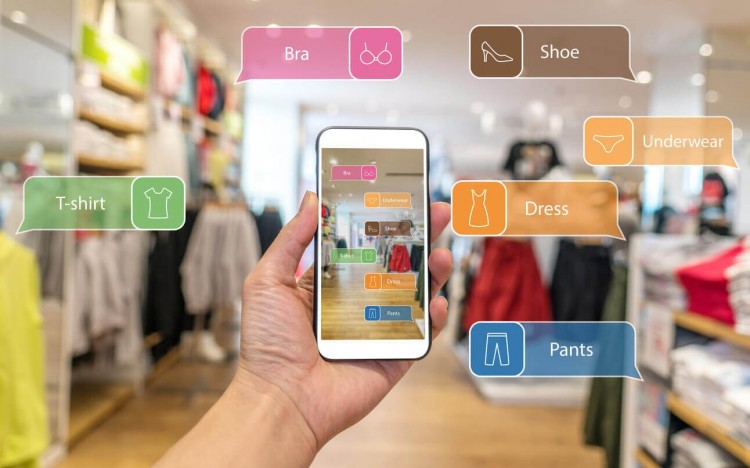Whether its adding digital backgrounds to your selfies, or hunting 'Pokemon' in the real world, both, in their own way, are fun and gimmicky.
Now, disruptive technology is being rolled out by major luxury retailers and fashion labels such as Swarowski, Prada, and Burberry. For some brands, this enables you to digitally try on clothing, while for others, you can customize your own home digitally through your smartphone camera.
While these retailers still deal with tangible goods, they are being forced to adapt their products by enhancing and providing digital experiences.
“Luxury managers often see digital media as a threat, worrying that mass appeal will take power away from the brand,” says Anne-Sophie Dutat, in charge of the Online MBA in Luxury Management in the Digital Age at Sup de Luxe in Paris.
For the brand managers of the future, adapting luxury brands to the interests of the buyers of the future is crucial, and it is quite clear that ‘digital’ will play a large role in this.
Data and digital in the luxury world
©Wachiwit via iStock
Adapting to the new generation of buyers is crucial for retailers. For millennials and generations Y and Z, this is firmly centered in a world of technology.
“Digital attracts a much younger generation of clients not necessarily seen in physical stores yet,” Anne-Sophie notes.
Part of this is adapting the ‘DNA’ of a brand in a way that appeals to young consumers. Swarovski’s VR app, for example, shows goggle-wearing consumers around a luxury home fitted tastefully with Swarovski products.
Incorporating digitalization is at the forefront of the minds of luxury managers of the future, and at the heart of Sup de Luxe’s online MBA in Luxury Management in a Digital Age.
The online MBA combines the hallmarks of their luxury brand management degree with the technological considerations which make it ‘digital age’ relevant.
Modules in experiential marketing, for example, combines the established knowledge of building customer journeys with an understanding of immersive marketing and digital experiences.
A huge part of this is the use ofpersonalized data, which is being recorded and used to relate to the consumer as an individual in their customer journey.
“Data represents one of the greatest opportunities for luxury brands to translate their traditional offline experiences to the online world,” Anna-Sophie reveals.
Online with a twist
©Kerkez via iStock
Understanding digital technology isn't just theoretical, it is part of the structure of the program. As the name suggests, the MBA is now conducted mostly online.
The online MBA has seen a significant increase in the last decade, with the number of programs increasing by 54% between 2012 and 2017.
"[Studying online] is a huge opportunity for working people around the world to get the specific knowledge and expertise for the luxury sector,” Anne-Sophie recognizes.
Crucially, it enables professionals to study for their MBA while continuing their job in a remote location, alleviating the geographical and temporal commitment of a business degree.
In addition, students get a taste of the Sup de Luxe experience during a week-long study trip to Paris. Online MBA students get the chance to meet with luxury brand managers and immerse themselves in the fashion houses based in the French capital, experiencing, in a week, the seminars and events that full-time MBA students attend.
This allows students to see the application of digital in a physical setting, as well as speaking to experts in the field and their experiences of digitalizing these firmly-established brands.
A whole new way of buying
The ‘digital age’ is not a future any more—it is now.
Millennials are increasingly detached from the in-store mode of shopping, and much more attached to the online way. In the US, 47% said they would prefer to buy online, compared to 43% in store.
Moreover, Goldman Sachs estimates that virtual and augmented reality technology will be worth $80 billion by 2025, as it becomes more of an integrated part of retail.
For luxury brand managers, this is a pressing priority. For online MBA students at Sup de Luxe, this is an opportunity to use disruptive technology to innovate a historic luxury industry.
For customers and retailers, it’s a win-win. “Technology allows customers to experience products differently, in a more intense, innovative and unique way,” Anne-Sophie beams.









